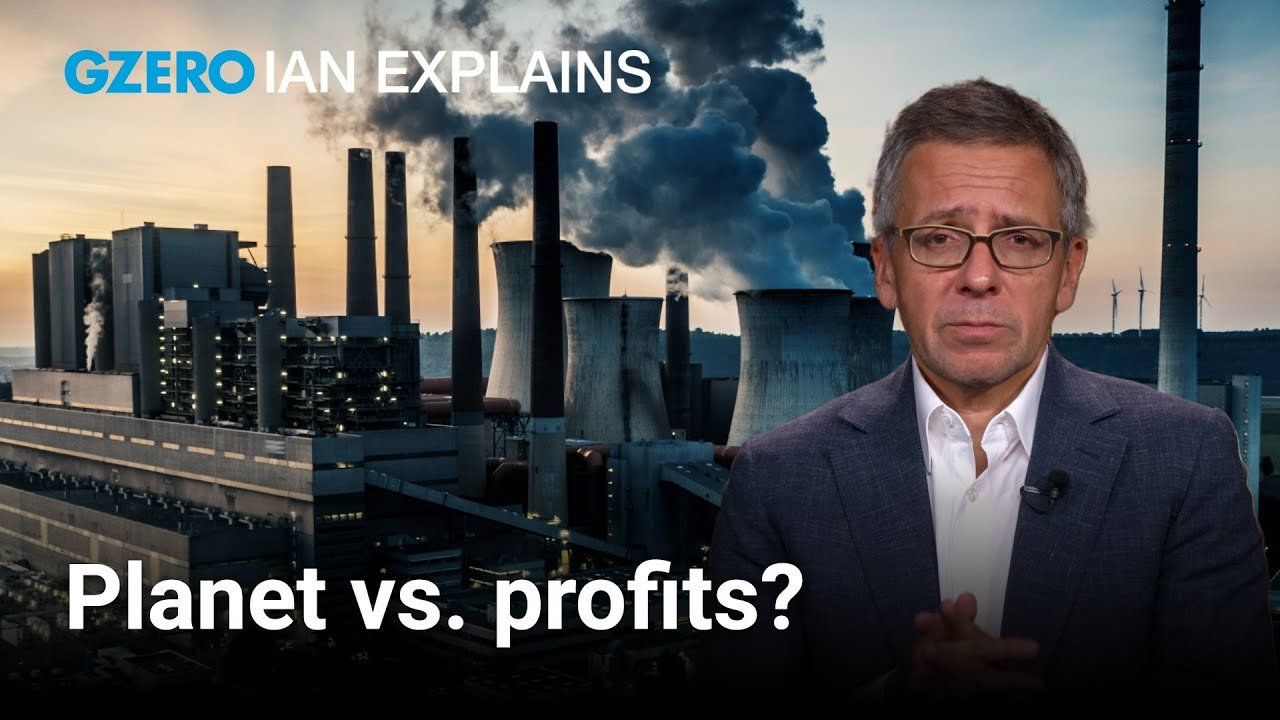
“How much are we willing to sacrifice to stop climate change?”
That’s how the conversation is usually framed, that fighting climate change requires some sort of trade-off: save the planet vs. maintain living standards, reduce carbon emissions vs. increase profits, lower global temperatures vs. lift more people out of poverty.
On Ian Explains, Ian Bremmer argues that this framing is actually a false choice. In the last decade, the underlying technology and economics of decarbonization have improved so much, we no longer need to choose between investing in climate mitigation and economic growth. In fact, clean energy technology like solar panels, wind turbines, and advanced battery storage have become, in many ways, more affordable than fossil fuels.
But despite the clear advantages of decarbonization, powerful interests like Big Oil, fossil fuel workers, and petrostates seem determined to cling to the status quo and slow down the green transition. Can competing interests put aside their differences and short-term goals to come up with a climate policy that works for everyone?
Watch more on this episode of GZERO World with Ian Bremmer on US public television (check local listing) and at gzeromedia.com/gzeroworld.
- Climate crisis can't be hijacked by global competitions: Justin Vaisse ›
- Geoengineering: science fiction or a solution to the climate crisis? ›
- Want to fix climate change? This is what it’ll take. ›
- What Africa has to say about climate change ›
- The Graphic Truth: Has climate change hurt or helped farmers? ›
- Climate change is "wreaking havoc" on supply chains ›